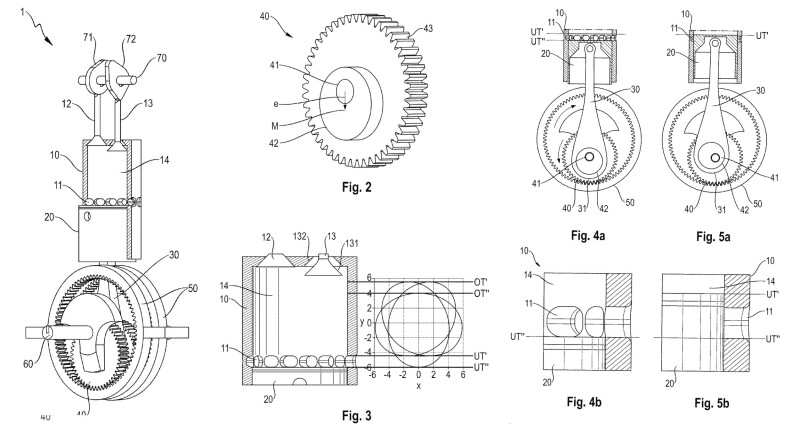
Posted on 09/23/2024 1:19:26 PM PDT by Red Badger

The patented engine design features a special crankshaft that adds more power and compression strokes to the cycle.
=================================================================
Porsche has revealed a strange (and possibly brilliant) idea for a six-stroke combustion engine. If you don't know the fundamentals of an internal combustion engine, we'll try to keep this simple. If you do know how engines work ... we'll still try and keep it simple.
With very few exceptions every combustion-powered car uses a four-stroke engine: intake, compression, power, and exhaust. The intake stroke is where air and fuel come into the cylinder. Compression is when the piston pushes that mixture to the top of the cylinder. The mixture is ignited, shoving the piston back down for the power stroke. Exhaust is the final step, pushing the remaining gas out of the cylinder.


Porsche designers reckon they can add another compression and power stroke to this process. Documents filed with the US Patent and Trademark Office specifically describe this as "six individual strokes that can be divided into two three-stroke sequences." The added steps would occur between the traditional power and exhaust stroke. The first sequence, then, would be intake-compression-power, followed by compression-power-exhaust.
To do this, Porsche's patent shows a crankshaft spinning on a ring with two concentric circles—an annulus. This alternates the center point of rotation, effectively lowering the piston's travel (bottom dead center) slightly for the added strokes. That in turn changes the compression, since the piston isn't traveling as far up (top-dead-center) in the cylinder. And that also means this engine has two top and bottom dead centers.
Why all the complexity? In short, this design has the potential to generate more power with better efficiency. In a typical engine, only one stroke in four actually makes power. This changes the formula to one stroke in three, and it also burns up the mixture more thoroughly. Of course, the downside is added complexity. Whether the gains are enough to justify the design remains to be seen.
As with many patents, it's possible this could never see the light of day. It's certainly an interesting idea, but perhaps more importantly, it suggests Porsche is working very hard at finding ways to keep combustion engines alive amid the push for electric power.

And so on and so on and scooby dooby dooby!
Everyday People!...................
Some are easier to change than others, but if the engine (chain for timing) is serviced properly, they are usually not as reliable. Most timing belts are run dry, I believe.
Had a lawn mower with a Honda engine & wet timing belt. It seemed to work Ok, but you must remember it is a more or less fixed RPM engine & if the belt did break it would be MUCH less work to replace than on a multi-cylinder car engine.
“The fact engine exhaust is hot tells us it still has a lot of energy left in it, but we just allow it to blow out the exhaust pipe because to expand it further would take a bigger engine with a longer expansion stroke.”
Many modern engines are turbocharged.
Best car I have ever had.
Disclaimer: Opinions posted on Free Republic are those of the individual posters and do not necessarily represent the opinion of Free Republic or its management. All materials posted herein are protected by copyright law and the exemption for fair use of copyrighted works.